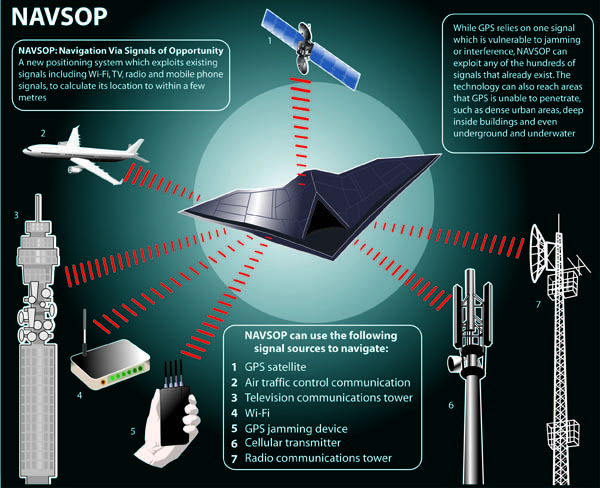In today's world, both consumers and industry alike have become and, are becoming, increasingly reliant on GPS technology to provide accurate positioning and/or timing information. So much so, that the EU commission estimates that over £640 billion of the EU economy is dependant on the capabilities of GPS (aviation, shipping, agriculture and telecomms to name a few).
Knowing this has therefore created financial incentives and funding for projects that look to offer an alternative to GPS, to be utilised in the event that either natural causes, such as radiation from the sun or, man-made causes, such as war, knock-out the GPS system. Likewise, the system has limitations when it comes to indoor use.

UK defence firm, BAE Systems, believes it has the answer with its Navsop system. The new tech relies on wireless signals from large comms networks, such as TV, mobile and radio antennas, determining locations based on direction and signal strength, with some of the frequencies capable of penetrating walls for indoor use.
Navsop requires GPS at first to gain its bearings, however, soon learns to use the wireless signals in the area to obtain its location, eventually becoming capable of functioning completely free from or in compliment to GPS. As the technology can work indoors, it has potential applications in augmented reality or search and rescue.
Currently the system sits in a big black box on the roof of a researcher's car, however, the group believes it can be reduced to the same size as a standard GPS system in the near-future, at which point the technology could become viable for roll-out. It'll be interesting to see if this is picked up for commercial use as well.













